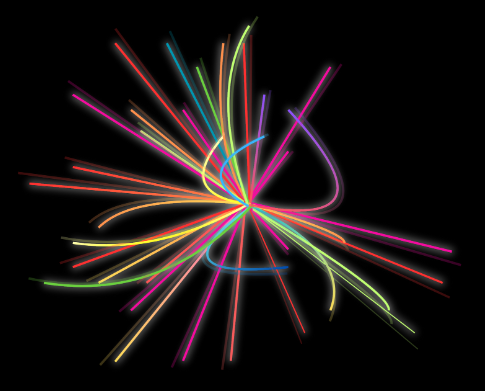Particle Theory
Overview
Particle theory projects involve studying some of the most fundamental building blocks of the universe. Students are given the opportunity to do in depth research into subatomic particles such as neutrinos and quarks, advancing scientific knowledge on the topic.

Fig 1. Illustration of a particle collision
These projects are often highly theoretical or computational. Many involve simulating a wide variety of particles to observe their behaviour. These simulations can model new particles, interesting behaviour, or collisions with other particles.
The student then compares the predictions of these simulations to real measurements to evaluate the success of their model. Other projects involve understanding the mathematical basis for the behaviour of the particles.
Projects:
Projects are updated regularly, but previous project topics have included:
- Gravitational waves from cosmic electroweak walls
- Certain theories behind the Standard Model produce domain walls in the early universe during the electroweak phase transition, which, if ever present, must have left behind a trace of gravitational waves. This project will compare predictions of this theory with gravitational wave and particle experiments.
- Machine learning techniques for tau neutrino reconstruction
- This project aims to develop a machine-learning algorithm that improves the reconstruction of the low energy event sample and seeks new observables that enhance the event classification.
- Scrutinizing rare Higgs boson decays
- Derive analytical expressions and implement them in computer simulations for Higgs decays into lepton pairs plus a proton and use the results to explore the sensitivity of LHC measurements to non-standard Higgs interactions.


/prod01/prodbucket01/media/durham-university/departments-/physics/teaching-labs/VT2A9034-1998X733.jpeg)